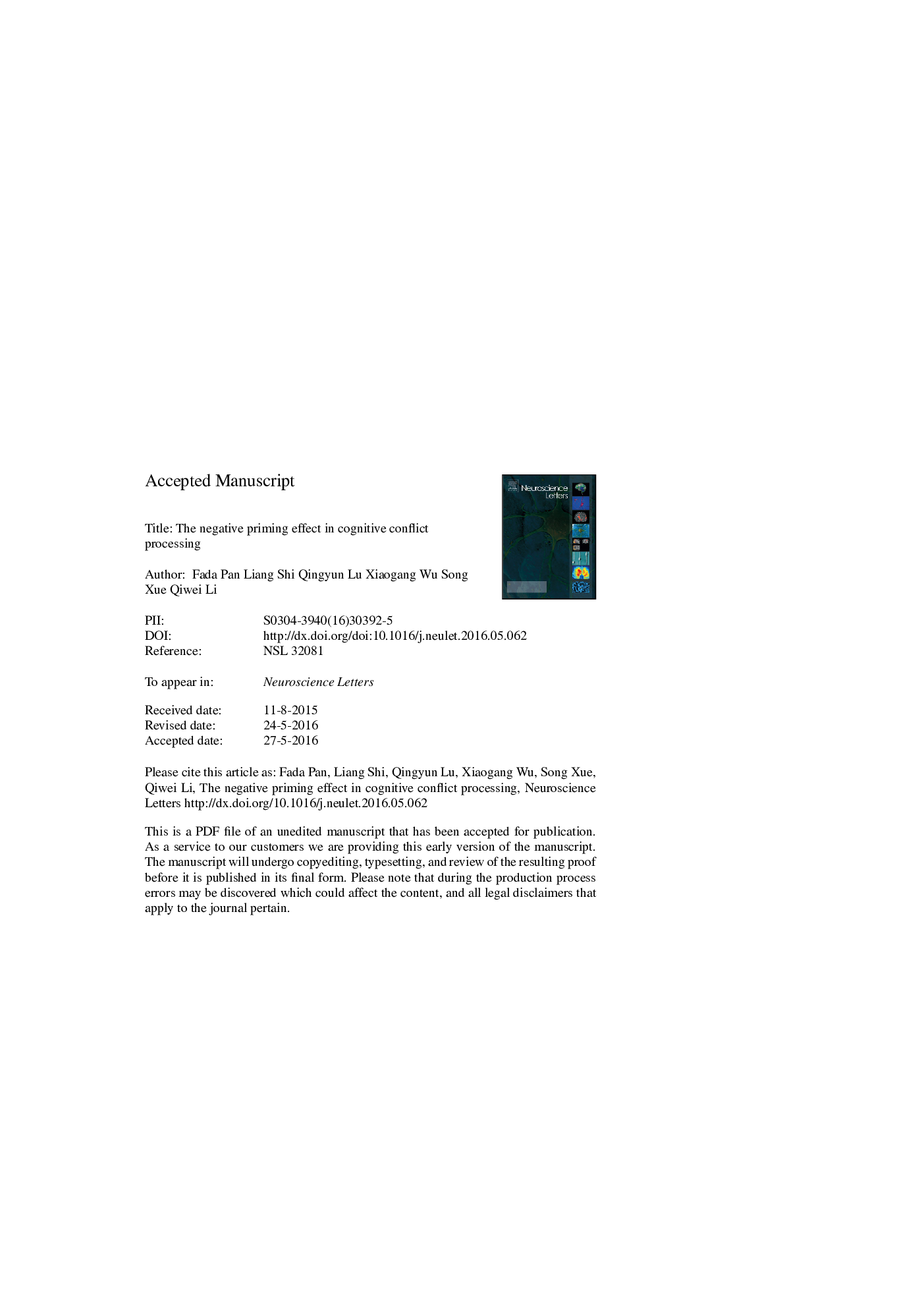| Article ID | Journal | Published Year | Pages | File Type |
|---|---|---|---|---|
| 6279339 | Neuroscience Letters | 2016 | 23 Pages |
Abstract
The present study used event-related potentials (ERPs) to investigate the specific physiological mechanisms underlying the negative nature of cognitive conflict and its influence on affective word evaluations. The present study used an affective priming paradigm where Stroop stimuli were presented for 200Â ms after which affective target words had to be evaluated as being positive or negative. Behavioral results showed that reaction times (RTs) were shorter for positive targets following congruent primes relative to incongruent primes, and for negative targets following incongruent primes relative to congruent primes. The ERP results showed that the N2 amplitude (200-300Â ms) for incongruent stimuli was significantly larger than for congruent stimuli in the Stroop task, which indicated a significant conflict effect. Moreover, the N400 amplitude (300-500Â ms) was smaller for negative words following incongruent primes relative to congruent primes, and for positive words following congruent primes relative to incongruent primes. The results demonstrated that cognitive conflict modulated both behavioral and electrophysiological correlates of subsequent emotional processing, consistent with its hypothesized registration as an aversive signal.
Related Topics
Life Sciences
Neuroscience
Neuroscience (General)
Authors
Fada Pan, Liang Shi, Qingyun Lu, Xiaogang Wu, Song Xue, Qiwei Li,
